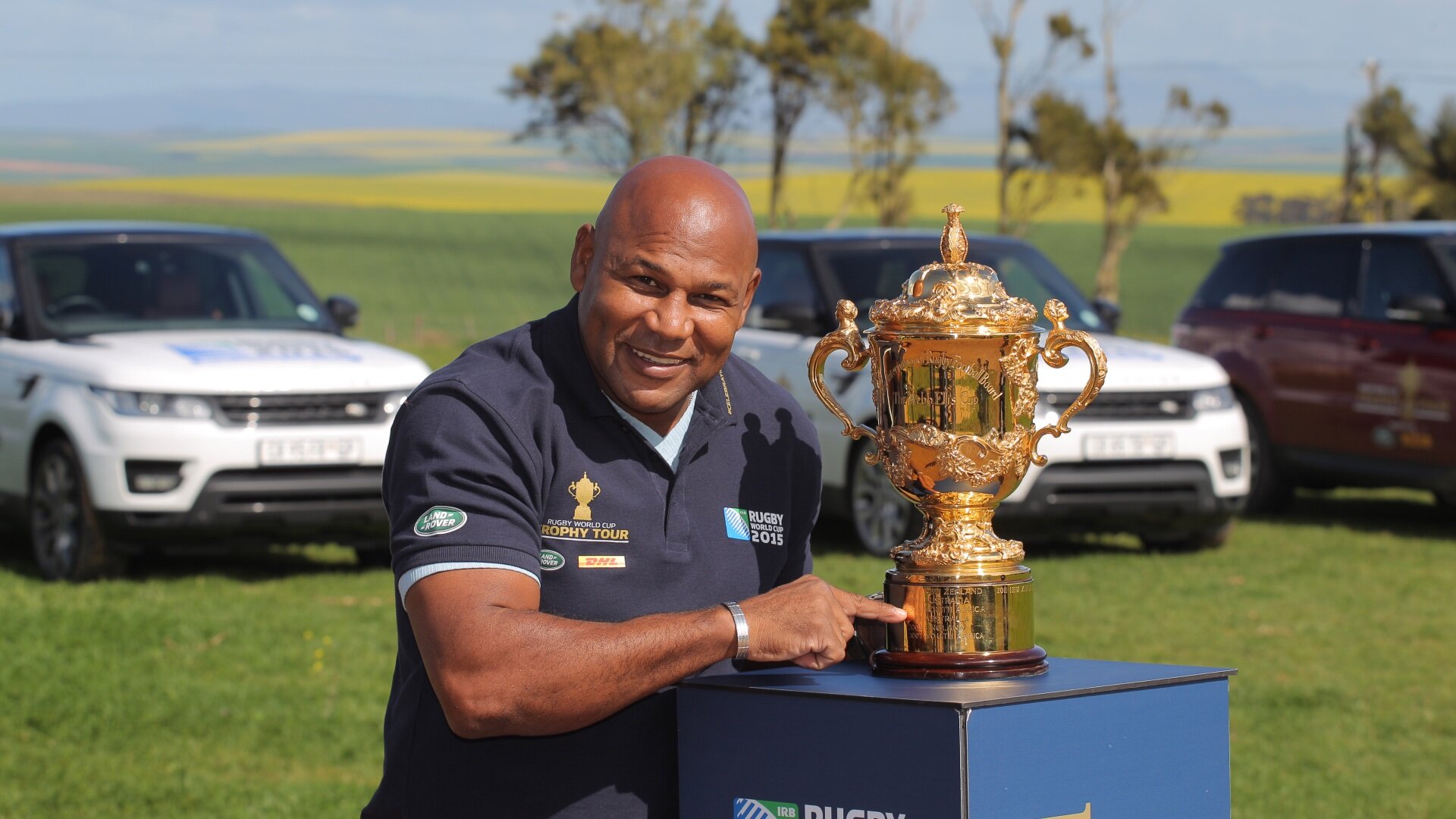Legendary Springbok Chester Williams dead at the age of 49

Legendary 1995 World Cup-winning Springbok wing Chester Williams had passed on Friday at the age of 49. According to reports it is suspected that University of Western Cape head coach Williams suffered a heart attack.
The scorer of 14 tries in his 27 Test match appearances, Williams becomes the fifth member of the 1995 squad to have passed away, his death coming just two months after James Small, 50, passed away. Kitch Christie (coach), Ruben Kruger (flank) and Joost van der Westhuizen (scrum-half) are other squad members who have died.
Kruger gave way to brain cancer in 2010, van der Westhuizen passed with motor neuron disease in 2017, while Christie died in 1998 as a result of his prolonged battled with leukaemia.
Mark Alexander, president of SA Rugby, reacted with shock and disbelief when the news of Williams’ death emerged. “The news of Chester’s passing is devastating and hard to believe, as he was still young and seemingly in good health,” said Alexander.
“Chester was a true pioneer in South African rugby and his performances at the World Cup in 1995, as a snapshot of his Springbok career, will forever be etched in the hearts and minds of our rugby public. As a member of the Springbok class of 1995, Chester was not only well-known in the rugby fraternity, but he was a much-loved South African whose influence stretched wider than just the rugby world.
(Continue reading below…)
“He was passionate about rugby and South Africa and as coach at various levels, selflessly gave back to the game after he hung up his boots. He played with courage and was a beacon of light in his community and in the broader South African context.
“Chester Williams had so much more to give. Our thoughts and condolences are with his wife, Maria, his children, family and friends during this very sad time.”
Nicknamed the Black Pearl, Williams was born in Paarl on August 8, 1970. He played for Western Province and the Golden Lions during his provincial career, which stretched from 1991 to 2000. He also had two seasons of Super Rugby with the Cats.
Devastating news. Rest in Peace, Chester Williams.
🔗 https://t.co/Kwt7t8fTzh#RIPChester pic.twitter.com/l7qJs9f4of
— Springboks (@Springboks) September 6, 2019
Williams made his Springbok debut against Argentina in 1993 and played until his last Test against Wales in 2000. In total, he played 47 matches in the green and gold, scoring 27 tries.
In 1995, he was a member of the initial Springbok squad for the World Cup, but had to withdraw due to injury shortly before the tournament started. He was later recalled and scored four tries in the quarter-final against Samoa.
Williams was named the SA Rugby player of the year in 1994. Apart from lifting the Webb Ellis Cup in 1995, Williams was also a member of the Springbok squad that won the Rugby Championship (then Tri-Nations) in 1998, and he won the Currie Cup with the Golden Lions in 1999.
https://twitter.com/Nisior0/status/1170032085404438529
Blessed with speed to burn and great anticipation, sevens rugby was also a natural fit for Williams, who played in 22 tournaments for the Springbok Sevens team, including the World Cup Sevens tournaments in 1993 and 2001. He also captained the Blitzboks at the Commonwealth Games in 1998.
After his playing days, Williams turned to coaching, where he was involved at various levels of the game, including the Blitzboks, Cats (Super Rugby), the national teams of Uganda and Tunisia, the Phakisa Pumas (Currie Cup), and more recently the University of the Western Cape in the FNB Varsity Cup.
WATCH: The RugbyPass stadium guide to Yokohama where South Africa will open their World Cup campaign against New Zealand
















